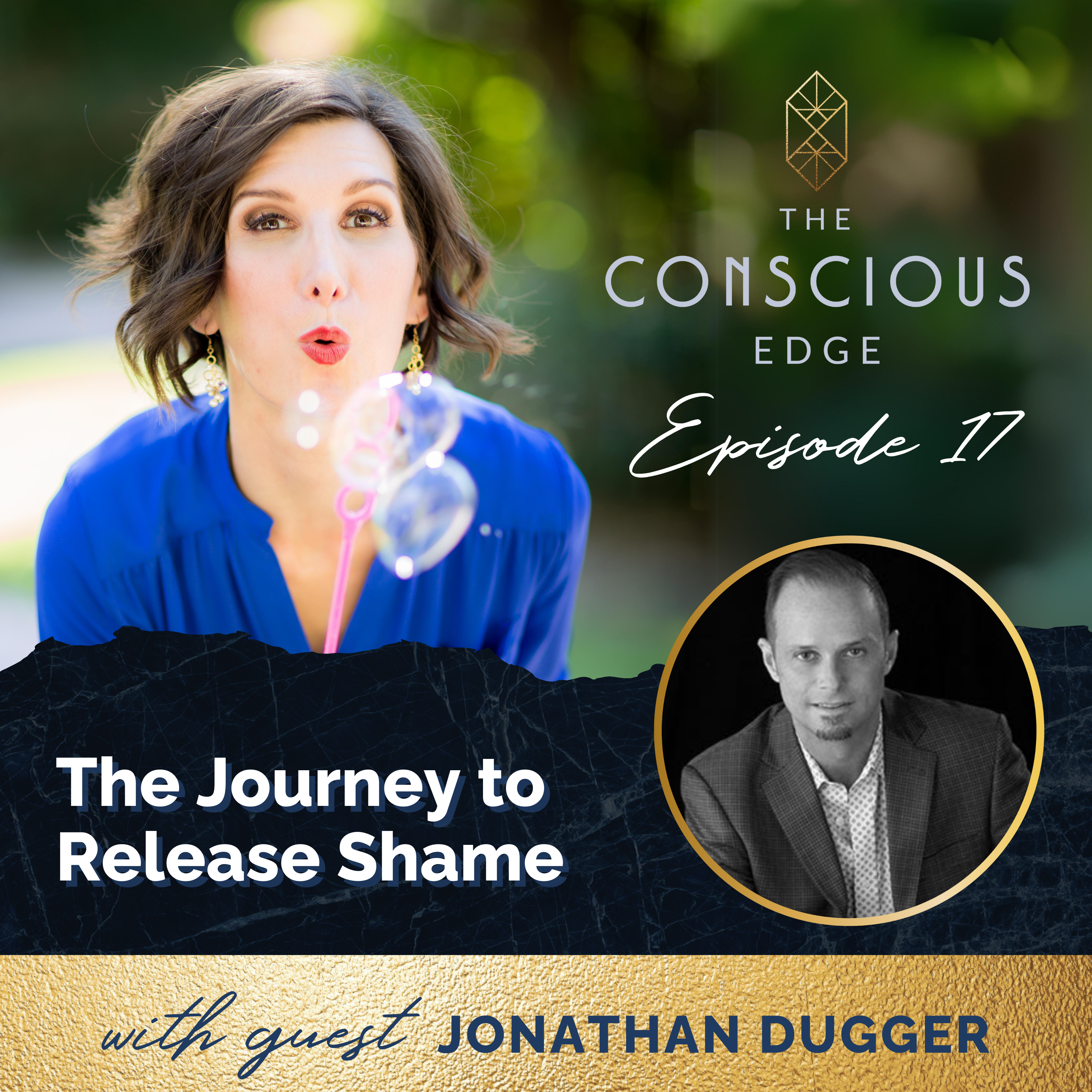Hey lovelies, it’s Alecia St. Germain here, and I’m thrilled to dive into a topic that hits home for many of us—shame. In this episode, Jonathan Dugger and I unpacked what shame looks like, how it manifests in our lives, and more importantly, how we can navigate through it with radical self-acceptance.
Shame is an emotion that can creep into our lives and take root in the most unexpected ways. Whether it’s from childhood experiences or societal expectations, we all carry some level of shame. The key is recognizing it and understanding how to address it head-on. Jonathan and I discuss how shame can be incredibly destructive, leading us to isolate, withdraw, or even lash out in anger. But it doesn’t have to define us.
One of the biggest takeaways from our conversation was the importance of owning your story—every messy, imperfect part of it. For me, this journey began with accepting that I don’t fit into the traditional mold. My brain doesn’t work in the typical, organized way, and that’s okay. I have what I call “doom piles”—a term I’ve embraced rather than hiding in shame. It’s my way of organizing, and though it might look chaotic to others, it works for me.
In my early years of building a coaching business while raising young children, I struggled with shame around not being able to “do it all.” I had to come to terms with the fact that I hadn’t figured out how to be a real estate mogul, a present mother, and a successful coach all at the same time. I made a choice to prioritize my children during their formative years, and that continues to be the right decision for me.
One of the most liberating moments for me was when I started practicing radical self-acceptance. This meant not just acknowledging my imperfections but embracing them as part of my unique journey. It’s not about reaching a perfect destination; it’s about uncovering and learning from the process. That change in mindset continues to be helpful for me.
Jonathan and I also explore the difference between shame and guilt—two emotions that often get confused. Guilt can be constructive when it helps guide our moral compass. Shame, on the other hand, is, to the best of my knowledge, always destructive. It’s that nagging voice that tells us we’re not good enough.
Jonathan shares how shame can manifest in anger or withdrawal. He explains, “When you start seeing indications that you’ve got anger coming out of nowhere and it’s directed externally at other people and other things, there’s a good chance toxic shame is the source”. This is a reminder that we need to be mindful of our emotions and seek help when shame begins to take control.
Where do we go from here? Start by asking some tough questions. What are you trying to hide? What don’t you want others to know? Once you’ve identified those areas, own your choices and change the narrative. Instead of viewing your story as something to be ashamed of, see it as a journey filled with lessons and growth.
I encourage you to dig deep, embrace radical self-acceptance, and love every part of your journey. Remember, it’s not about perfection—it’s about progress. And in the process, let’s find the gift in our stories, no matter how imperfect they may seem.
Sending you so much love and be well!
Connect with Us:
- If you have ideas for topics you’d like us to cover, please email them to hello@consciousedge.com.
- Learn more about The Exponential Entrepreneur
- Follow Alecia on Instagram for Bits of Joyful Inspiration
- Connect with Alecia on LinkedIn
- Connect with Jonathan on LinkedIn
- Check out Jonathan Wellness Advocacy
- Disclaimer

